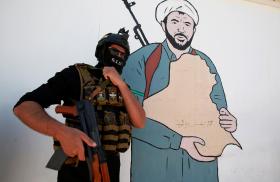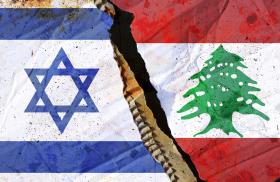Following this weekend's widespread disturbances in Libya, Muammar Qadhafi could lose power within hours or days as his military units and security services crumble in the face of popular discontent. Alternatively, he could decide -- in the ominous words of his son Saif al-Islam -- to "fight to the last bullet," which suggests even more horrific levels of violence and anarchy. In a rambling television broadcast today, February 22, the colonel pledged to "die as a martyr."
Qadhafi's personal eccentricities, as well as his responsibility for the 1988 downing of Pan Am Flight 103 over Lockerbie, Scotland, will make few sorry to see his departure. But the challenges of this turn of events for whoever forms the next government would be enormous. The consequences of missteps for the region -- and especially Europe, for which Libya is an important oil and gas supplier-- could be significant and rapid.
Background
In the four decades since he overthrew King Idris with other young army officers in 1969, Qadhafi has ruled notionally unopposed. The current system of government, introduced as he consolidated power in the 1970s, consists of people's committees; Qadhafi himself has no formal role. In reality, however, Libya is a police state with Qadhafi as a dictator, marked by a frequently quixotic style. The only institution in the country has been Qadhafi himself.
Moreover, Qadhafi's divide-and-conquer strategy has accentuated the country's already serious societal and tribal cleavages. The most obvious of these splits emerged when he took power. Many residents of the eastern Cyrenaica province (home to some 30 percent of the population) traditionally supported the king -- who led the influential anticolonial, Islamist, Senussi movement -- and have never really accepted Qadhafi's rule.
At the same time, unlike Egypt and Tunisia, where professional militaries served as arbiters during recent unrest, the Libyan army has never been particularly competent or coherent. During its last real test, a 1987 border war with Chad, Libyan military casualties were nearly 10 percent, an astonishingly high figure. It appears that Qadhafi has intentionally fragmented his armed forces over the years in order to insulate the regime against coup attempts, instead relying on several overlapping security organizations for protection.
Role of the Tribes
Given Cyrenaica's history, the potency of recent demonstrations in the east is perhaps not surprising. For years, the area has been regarded as a relative hotbed of antiregime sentiment, most prominently the cities of Benghazi and Darna. Reports of military defections -- including two Mirage F-1 fighter pilots who were purportedly ordered to attack civilians but landed in Malta instead -- also come as little surprise.
Many of the military's conscripts are from the tribes, which appear to be increasingly siding against Qadhafi as news of the atrocities spreads. Several key tribes have publicly declared opposition to his continued rule, most of them based in the east. For example, the Zawiya tribe near Benghazi threatened to cut off oil exports if the colonel remained in power. And on February 21, the Warfallah -- one of Libya's largest tribes, located south of Tripoli -- announced it was joining the movement to oust him.
Prospects for Regime Survival
From the outside, the array of forces lining up against the regime seems difficult to defeat. Yet Qadhafi still has a few cards to play. During a speech broadcast on Libyan television Sunday night, Saif said the regime would be prepared to make some "radical" but unspecified reforms. But if the demonstrators do not capitulate, he warned, Libya might slip toward a bloody civil war.
Although the latter threat was clearly self serving, Saif did have a valid point given the current trajectory of the struggle. The regime has already demonstrated just how ruthless it can be in its efforts to suppress the revolt, with the body count moving well into the hundreds and helicopter gunships deploying into Tripoli. Indeed, during its forty-two years in power, the regime has shown no compunction about murdering Libyan citizens or foreign nationals. And although the ferocity of Qadhafi's self-preservation efforts was expected -- one of his other sons, Khamis, commands the unit charged with regime protection -- every atrocity only ensures the loyalty of those units still linked to the dictator. After all, if the regime falls, those soldiers implicated in the violence could face the gallows.
Given the fast-moving pace of events, the regime could collapse at any moment. Should it persevere, though, what remains of the state could face infighting for some time to come.
Islamists and al-Qaeda Links
If the crisis continues, the country's long-repressed Islamist movement could benefit. Led by the Libyan Islamic Fighting Group, the movement has an impressive history of supporting jihadist causes, having worked with al-Qaeda for more than a decade. Since 2003, Libya has been the second-leading source (after Saudi Arabia) of insurgents entering Iraq via Syria. And not coincidentally, a plurality of these jihadists hailed from Darna, the epicenter of the rebellion. More recently, al-Bayda --a village not too far from Darna -- was declared an "Islamic Caliphate" by the locals following its liberation this week.
Oil and Gas Riches
Libya's oil export facilities and refineries are already reported to have closed because of labor strikes. The country has significant hydrocarbon wealth, though not as huge as the Persian Gulf countries of Saudi Arabia, Iran, Iraq, Kuwait, and the United Arab Emirates. Its reserves are still larger than those of other African countries in the Organization of the Petroleum Exporting Countries (OPEC) cartel: Algeria, Angola, and Nigeria. Spare global capacity should be sufficient to replace any Libyan cutbacks, but the immediate reaction of the commodity markets has been to bid up the prices.
Most of Libya's oil goes to Europe, with Italy -- a comparatively short voyage across the Mediterranean Sea --importing about a third. Germany, France, and Spain are also significant purchasers, and even China takes 10 percent of Libyan oil.
Libya also has significant natural gas reserves, although neighboring Algeria and Egypt are much larger producers. Here, too, Italy is a major customer: a 370-mile undersea pipeline transports gas from Libya to Sicily, from which it is piped to the Italian mainland. Libya also ships liquefied gas to Spain.
Policy Recommendations
Although the United States is working diplomatically to facilitate democratic transition in Tunisia and Egypt, the situation in Libya calls for more urgent, possibly military, involvement. In the region, Qatar has appealed for urgent Arab League mediation and condemned the violence against Libyan civilians. Yet given the emirate's track record -- such as hosting indicted Darfur war criminal Omar al-Bashir at the 2009 Arab Summit in Doha -- the Qataris will probably not serve as a compelling moral voice. A more likely place for progress is the UN Security Council, which is meeting today to discuss the crisis.
One proposal that the council will probably consider is the imposition of a no-fly zone across Libya to halt Qadhafi's use of fighter aircraft and attack helicopters against civilians. This would be similar to the zone set up over northern Iraq during the Saddam Hussein era to protect Kurdish civilians. As in Iraq, a Libyan operation would require the United States to take the dominant role, backed by its European allies. In order to function under the UN's aegis, such an operation would also require Russian and Chinese approval, which might not be forthcoming. The European Union could be much more supportive, however, given its fears regarding potential energy supply disruption and the flow of economic migrants from Libya becoming a flood of asylum seekers. But for Europe as well as the United States, the presence in Libya of many thousands of their own citizens will prompt caution.
Aside from action on the diplomatic front and examination of military-based peacekeeping operations, the Europe-based International Energy Agency (of which the United States is part) should check its plans for sharing the burden of energy supply disruptions by releasing emergency stocks. This might prove necessary even though Saudi oil minister Ali Naimi declared on February 22 that OPEC would make up any "shortage in supply," a wording that might not ease a price shock.
The events in Libya are a powerful example of the yearning for greater freedom across the Arab world and are likely to encourage unrest elsewhere. Indeed, North African neighbors Algeria and Morocco are already being affected. But Washington must keep in mind that such processes do not necessarily end within a few days, even as dictators depart amid joyful protestors.
Simon Henderson is the Baker fellow and director of the Gulf and Energy Policy Program at The Washington Institute. David Schenker is the Institute's Aufzien fellow and director of the Program on Arab Politics.



